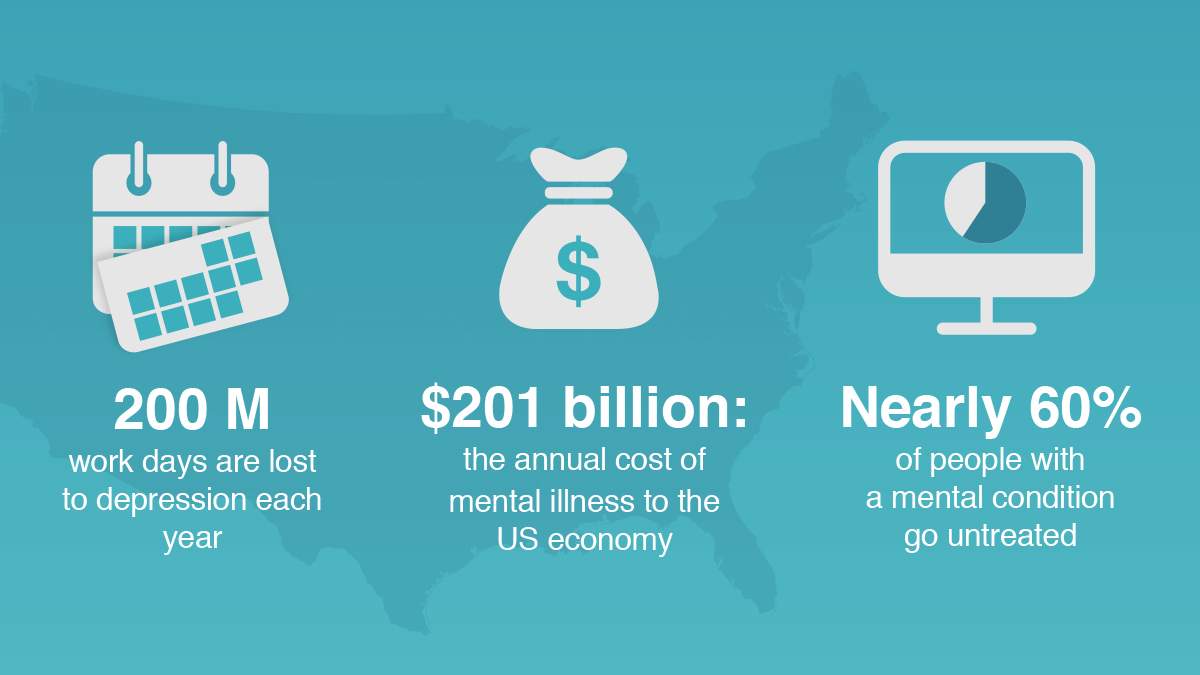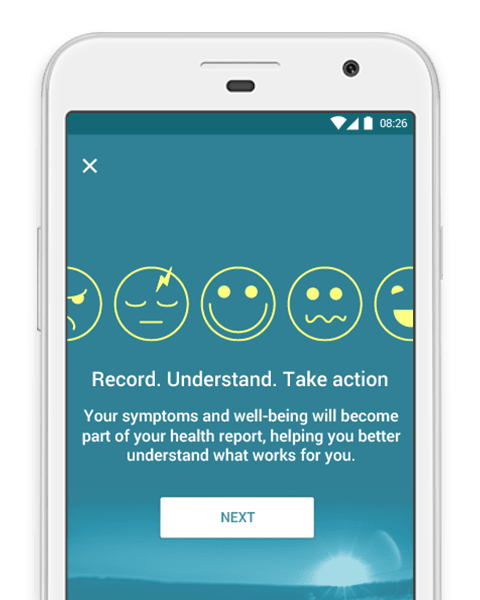For a person living with a mental health condition, the workplace can be a central source of anxiety and stress. All too often working environments are hostile to the notion of mental illness, perpetuating the negative stigma associated with them. As a result, many choose to remain silent, concerned about the consequences revealing the truth may have on their career. Others take time off work under the guise of physical illness, knowing such conditions are deemed more acceptable. Yet, with an estimated 44.7 million Americans living with a mental condition, it is imperative that those in need of support feel comfortable seeking it. Ultimately, improving workplace wellness will benefit the individual, the company, and the entire economy.
The Presenteeism Problem
The term presenteeism refers to an employee dragging themselves to work despite being physically or mentally unwell, and consequently underperforming. It is much, much costlier than absenteeism, according to two recent reports – one by Global Corporate Challenge (GCC) and the other by UL Workplace Health & Safety. The latter estimates the cost of presenteeism to be upwards of $150 billion annually, with depression alone accounting for $35 billion of that. The former found that employees took an average of 4 days off per year, but were unproductive for 57.5.
The root cause behind mental health-related presenteeism is a reluctance for many to admit their condition to their boss and colleagues. Even with understanding of such conditions improving, many still feel unable to reveal their illness, for fear of being defined by it by colleagues, and seeing their career consequently stall.
Presenteeism is a double-edged sword: not only does it have a tangible impact of productivity, it prevents those in need of medical assistance having the confidence to seek it. It is undoubtedly a contributing factor to the fact that nearly 60% of people with a mental condition do not receive treatment.
Why Does This Happen?
If you are diagnosed with a mental illness, the Americans with Disabilities Act (ADA) and Equal Employment Opportunities Act offer you protection, and ensure that your employer must make suitable adjustments that allow you to tackle your condition. However, to be protected by these laws, you must inform your employer of your diagnosis, and many are understandably concerned about the negative stigma still attached to them. Even employees whose performance has been high prior to their diagnosis may get labelled as unsafe, unstable, and unreliable once their condition is known.
If you don’t feel able to be open about your condition without facing these consequences, your options are limited. Either you keep quiet, or take leave but lie about the reason. Neither are conducive to treating your condition, and both have a negative effect on productivity. Short of seeking a more understanding employer – which is usually easier said than done – there are no ideal solutions if you are not comfortable telling your manager about your illness.
Should I Tell My Boss?
No two cases of mental illness are the same, and not all workplaces deal with them in the same way. Ultimately, you must consider your own situation when deciding how to proceed when diagnosed with a mental condition. Of course, the most important consideration is how you can receive the necessary treatment, which is best done with the help of a healthcare professional. During this process, you will have to decide whether to inform your employer. You are not required to do so by law, but withholding such information may prove counter-productive in both your treatment, and in maximizing your productivity at work. It’s worth considering whether, with reasonable accommodation, you are able to perform the essential functions of your job.
The good news is that employers are increasingly responsive and sensitive of such issues. Making the decision to tell your boss can be a tough step to take, but once taken you may find yourself better equipped to handle your work-life alongside your treatment.
How Employers Can Help Improve Workplace Wellness
Companies that resist changing their outlook on mental health conditions and workplace wellness are shooting themselves in the financial foot. The goal for employers is to have their workers present and working to their maximum capacity. To achieve such, the distinction between physical and mental illness must be dissolved, and an emphasis on all round well-being adopted. Companies that take a holistic approach to mental health often help tackle issues such as depression, stress, and anxiety at their root. Those that strive to accommodate employees with conditions such as bipolar disorder are rewarded with greater productivity, and often a significantly improved relationship with their employees.
Such measures can only be truly successful in a workplace environment that is accepting of mental illnesses. Ensuring all employees are trained and informed about mental health can help achieve this, and even encourage employees to consider their own mental wellness. Likewise, those in positions of seniority being open about their mental health experiences can be hugely influential in creating an open, honest environment.
Tackling the Stigma
Over 18% of the population live with a mental health condition. Even if you don’t personally, you almost certainly know people who do. Tackling the stigma surrounding mental health in the workplace does not only benefit those with a condition. It improves the work environment for everyone, maximizes productivity, and is financially beneficial for both the company and the wider economy.
If you like this post, you may also like:



